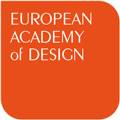Design practice, research, and education in Latin America evolved through the trenches shaped by the uncertain socio-technical contexts of middle-income countries, in a process highly influenced by European and US development standards. Two decades after the creation of the first PhD programs in design in Brazil and Latin America, despite the de-industrialization process opposite to the industrialization landscape that first established the need for design in the middle of the 20th century, design emerged as an essential field able to frame multiple aspects of human experience.
Yet not widely recognized, especially within governmental and public sectors, design is a discipline capable of producing knowledge, imagining, and shaping better futures. The work of pioneers like Darcy Ribeiro and Gui Bonsiepe pinpoints the emancipatory role of higher education and the challenges of ‘development through design’ in Latin America, stressing the center-periphery relation. Bonsiepe also addressed the tense relationships between design science, professional practice, and academia. More recently, the ontological design approach to the pluriverse proposed by Arturo Escobar brings to light the need for autonomy and inclusion in ‘a world where many worlds fit’. This hub focuses on the challenges, achievements, and threats faced by design research and education beyond Europe and the US. Why, when, and how have Latin American public and private universities established doctoral degree programs in Design, and how have those programs evolved? What opportunities, constraints, and practices influenced the configuration of design research and PhD programs in different countries and regions? Which efforts were made to promote inclusion and diversity inside and outside academia? How does design research contribute to the acknowledgement of local traditions and artefacts as relevant to design culture? What are the current challenges and actions toward counterbalancing racial and gender-based discrimination and historical inequalities?
Submission is closed
We accepted contributions in two categories:
- Full paper (for oral presentation): 3000 – 4000 words, plus 150-word abstract. Indicated for completed investigations with consolidated results.
- Short paper (for poster presentation): 1000 to 2000 words, plus a 150-word abstract. Indicated for research results in progress, short reflections, or specific case studies.
Additional information on the submissions for São Paulo can be found on their individual host website


